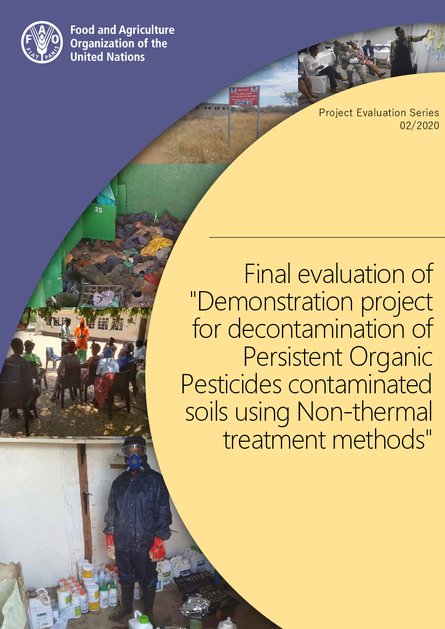
Since the 1980s, pesticides have been used in Botswana for agricultural production and to help control outbreaks of pests. Large quantities of unused pesticides remained in depots where they leaked from their containers and contaminated the soil, posing a threat to both human and environmental health. While the accumulation of persistent organic pollutants (POPs) in Botswana has fallen through awareness of the problem raised by past projects, it remains an ongoing problem. From 2008 to 2016, the project ''Demonstration project for decontamination of POPs contaminated soils using non-thermal treatment methods'' was implemented with the objective to ''reduce the risk to public health and environment from pesticides through the characterization, treatment and decontamination of POPs and POPs contaminated soils''. The evaluation assesses the project against its objective and documents intended and unintended consequences. The evaluation used a cluster approach, with two similar projects in Eritrea (GCP/ERI/014/GFF) and Mozambique (GCP/MOZ/100/GFF), to allow for cross-project comparisons and learning.
